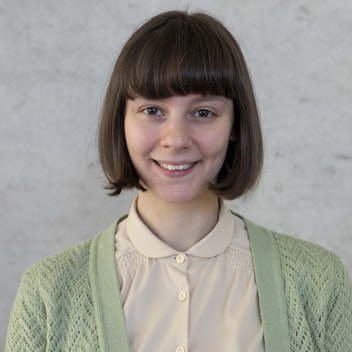Data donations: Why should I donate my cover letter to research?

Have you ever thought about how your cover letter could be more than just a ticket to your dream job? Imagine it contributing to groundbreaking research! Data donation is one way to actively contribute to timely research and help unlock the secrets of effective communication in the professional realm.
What is data donation and why is it so important for research?
Data donation involves voluntarily providing personal data, such as social media usage, Google Maps tags, bank transactions, or even cover letters, to researchers who use them as the basis to answer their research questions. In the context of linguistics and professional communication, these donations are invaluable. They enable researchers to analyze real-world writing patterns, uncover hidden biases, and make suggestions to improve practices for job applications.
For my doctoral research, I have set up a data donation campaign focused on collecting cover letters written in a multilingual professional context. These donations will form a corpus of academic cover letters, a treasure trove of information for linguistic and recruitment research.
Data donors will help explore some crucial questions in the field:
Does complexity in writing cover letters increase your chances of success, or is simplicity more rewarded and deemed appropriate? This might depend on the discipline, and your cover letter could hold the answer. Your cover letter might also dismiss the age-old stereotype that humanists write better than engineers... 🙈 Could it be that their writing is more straightforward, and thus better valued by expert assessors, or do they indeed struggle with crafting engaging prose?
What is possible to achieve through data donations?
By studying cover letters, it is possible to understand the preferences of hiring experts in the early stages of the recruitment process, for instance whether complex writing impresses more than simple, concise language. This could vary across different disciplinary fields, making the donations from professionals trained in different areas of study even more important.
All cover letters will undergo a rigorous anonymization process, aided by natural language processing tools and a manual quality check afterwards. This ensures your privacy and allows for unbiased analysis. Imagine a world where initial screenings in the hiring process are done without knowing the candidate’s name, nationality, or gender — purely meritocratic!
Moreover, by comparing cover letters sent before and after ChatGPT, we can identify words and multi-word expressions that have surged in popularity post-ChatGPT, not only in English, but also in German and Italian. This could be a way both for applicants to keep track of too-GPT-sounding chunks, and for selection committees to know how authentic the application is.
With a substantial amount of data, it would also be possible to identify conventional ways of phrasing in cover letters. While similar studies have been conducted for academic papers, this will be pioneering work on cover letters, offering useful materials for students and early career researchers and professionals to express themselves uniquely and stand out, while being aware of the conventions and strategies of the genre.
How can I help? Donate your cover letter!
If you want to contribute to this research, please fill in the form at this link. Your contribution is very important! For the moment, you can participate only if you applied or are applying for a job position at Eurac Research. In the future, data collection might be open to other interested data donors as well, so stay tuned!
For any questions or curiosities, feel free to reach out at arianna.bienati[AT]eurac.edu. Your contribution not only aids research but also helps in developing better recruitment practices and training materials for the applicants of the future! 🚀

Tags
Citation
This content is licensed under a Creative Commons Attribution 4.0 International license except for third-party materials or where otherwise noted.

What is Minionese and why is it relevant for plurilingualism studies?
 Marta Guarda
Marta Guarda
Tell me ChatGPT, how many meters can’t you jump?*
 Egon Stemle
Egon Stemle
Haben Frauen das Zeug, um sich in der parlamentarischen Debatte kommunikativ durchzusetzen?
 Maria Stopfner
Maria Stopfner